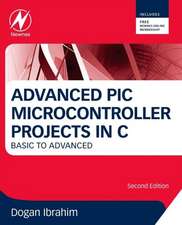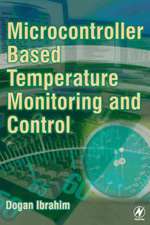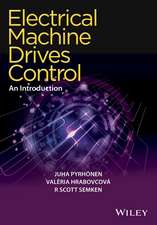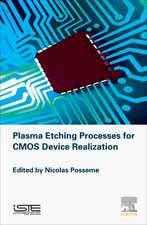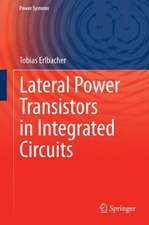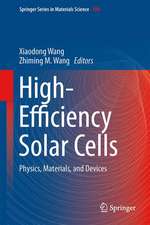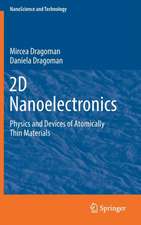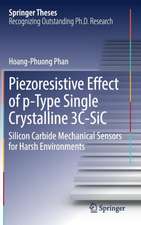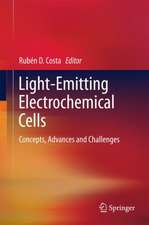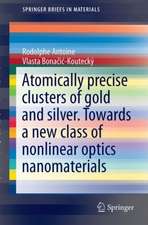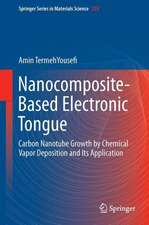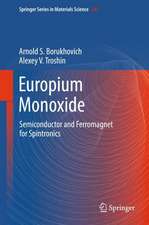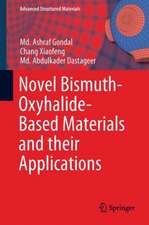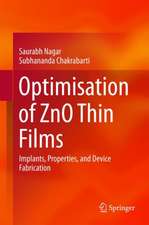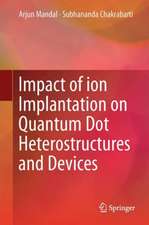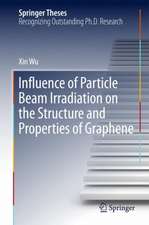Metal Impurities in Silicon-Device Fabrication: Springer Series in Materials Science, cartea 24
Autor Klaus Graffen Limba Engleză Paperback – 21 oct 2012
| Toate formatele și edițiile | Preț | Express |
|---|---|---|
| Paperback (1) | 640.24 lei 6-8 săpt. | |
| Springer Berlin, Heidelberg – 21 oct 2012 | 640.24 lei 6-8 săpt. | |
| Hardback (1) | 644.18 lei 6-8 săpt. | |
| Springer Berlin, Heidelberg – 18 feb 2000 | 644.18 lei 6-8 săpt. |
Din seria Springer Series in Materials Science
- 18%
 Preț: 1820.22 lei
Preț: 1820.22 lei - 18%
 Preț: 776.09 lei
Preț: 776.09 lei - 24%
 Preț: 689.68 lei
Preț: 689.68 lei - 18%
 Preț: 968.96 lei
Preț: 968.96 lei - 20%
 Preț: 568.94 lei
Preț: 568.94 lei - 18%
 Preț: 953.65 lei
Preț: 953.65 lei - 18%
 Preț: 902.36 lei
Preț: 902.36 lei - 18%
 Preț: 953.65 lei
Preț: 953.65 lei - 20%
 Preț: 948.41 lei
Preț: 948.41 lei - 18%
 Preț: 1143.07 lei
Preț: 1143.07 lei - 18%
 Preț: 1111.53 lei
Preț: 1111.53 lei - 18%
 Preț: 1103.62 lei
Preț: 1103.62 lei - 18%
 Preț: 1225.94 lei
Preț: 1225.94 lei -
 Preț: 473.91 lei
Preț: 473.91 lei - 18%
 Preț: 782.42 lei
Preț: 782.42 lei -
 Preț: 433.47 lei
Preț: 433.47 lei - 18%
 Preț: 1116.40 lei
Preț: 1116.40 lei - 18%
 Preț: 946.24 lei
Preț: 946.24 lei - 18%
 Preț: 945.20 lei
Preț: 945.20 lei - 15%
 Preț: 641.20 lei
Preț: 641.20 lei - 18%
 Preț: 958.56 lei
Preț: 958.56 lei - 18%
 Preț: 1224.36 lei
Preț: 1224.36 lei - 15%
 Preț: 644.82 lei
Preț: 644.82 lei - 24%
 Preț: 833.43 lei
Preț: 833.43 lei - 24%
 Preț: 1060.33 lei
Preț: 1060.33 lei - 18%
 Preț: 964.10 lei
Preț: 964.10 lei - 18%
 Preț: 1224.36 lei
Preț: 1224.36 lei - 18%
 Preț: 1221.20 lei
Preț: 1221.20 lei - 18%
 Preț: 946.87 lei
Preț: 946.87 lei - 18%
 Preț: 1836.92 lei
Preț: 1836.92 lei - 15%
 Preț: 643.34 lei
Preț: 643.34 lei - 18%
 Preț: 1246.32 lei
Preț: 1246.32 lei - 18%
 Preț: 956.81 lei
Preț: 956.81 lei - 18%
 Preț: 953.52 lei
Preț: 953.52 lei - 15%
 Preț: 637.59 lei
Preț: 637.59 lei - 24%
 Preț: 1060.87 lei
Preț: 1060.87 lei
Preț: 640.24 lei
Preț vechi: 753.22 lei
-15% Nou
Puncte Express: 960
Preț estimativ în valută:
122.51€ • 128.25$ • 101.37£
122.51€ • 128.25$ • 101.37£
Carte tipărită la comandă
Livrare economică 05-19 aprilie
Preluare comenzi: 021 569.72.76
Specificații
ISBN-13: 9783642629655
ISBN-10: 3642629652
Pagini: 292
Ilustrații: XV, 270 p.
Dimensiuni: 155 x 235 x 15 mm
Greutate: 0.41 kg
Ediția:2nd ed. 2000. Softcover reprint of the original 2nd ed. 2000
Editura: Springer Berlin, Heidelberg
Colecția Springer
Seria Springer Series in Materials Science
Locul publicării:Berlin, Heidelberg, Germany
ISBN-10: 3642629652
Pagini: 292
Ilustrații: XV, 270 p.
Dimensiuni: 155 x 235 x 15 mm
Greutate: 0.41 kg
Ediția:2nd ed. 2000. Softcover reprint of the original 2nd ed. 2000
Editura: Springer Berlin, Heidelberg
Colecția Springer
Seria Springer Series in Materials Science
Locul publicării:Berlin, Heidelberg, Germany
Public țintă
ResearchCuprins
1. Introduction.- 2. Common Properties of Transition Metals.- 2.1 General Behavior.- 2.2 Contamination of Silicon Wafers.- 2.3 Impact on Device Performance.- 3. Properties of Transition Metals in Silicon.- 3.1 Solubilities.- 3.2 Diffusivities.- 3.3 Dissolved Impurities.- 3.4 Precipitated Metals.- 4. Properties of the Main Impurities.- 4.1 Iron.- 4.2 Nickel.- 4.3 Copper.- 4.4 Molybdenum.- 4.5 Palladium.- 4.6 Platinum.- 4.7 Gold.- 5. Properties of Rare Impurities.- 5.1 Scandium.- 5.2 Titanium.- 5.3 Vanadium.- 5.4 Chromium.- 5.5 Manganese.- 5.6 Cobalt.- 5.7 Zinc.- 5.8 Zircon.- 5.9 Niobium.- 5.10 Ruthenium.- 5.11 Rhodium.- 5.12 Silver.- 5.13 Cadmium.- 5.14 Hafnium.- 5.15 Tantalum.- 5.16 Tungsten.- 5.17 Rhenium.- 5.18 Osmium.- 5.19 Iridium.- 5.20 Mercury.- 6. Detection Methods.- 6.1 Detection of Total Impurity Content.- 6.2 Detection of Dissolved Impurities.- 6.3 Detection of Precipitates.- 7. Requirements of Modern Technology.- 7.1 Reduction of Contamination.- 8. Gettering of Impurities.- 8.1 Gettering Mechanisms.- 8.2 Control of Gettering Efficiency.- 9. Conclusion and Future Trends.- References.
Textul de pe ultima copertă
Metal Impurities in Silicon-Device Fabrication treats the transition-metal impurities generated during the fabrication of silicon samples and devices. The different mechanisms responsible for contamination are discussed, and a survey is given of their impact on device performance. The specific properties of the main and rare impurities in silicon are examined, as well as the detection methods and requirements in modern technology. Finally, impurity gettering is studied along with modern techniques to determine the gettering efficiency. In all of these subjects, reliable and up-to-date data are presented. This monograph provides a thorough review of the results of recent scientific investigations, as well as the relevant data and properties of the various metal impurities in silicon. The new edition includes important recent data and a number of new tables.
Caracteristici
The author, in close cooperation with scientists from MPG Stuttgart (Prof. Queisser and Dr. J. Wehr), has extended and updated the treatment that is most important for semiconductor technology

